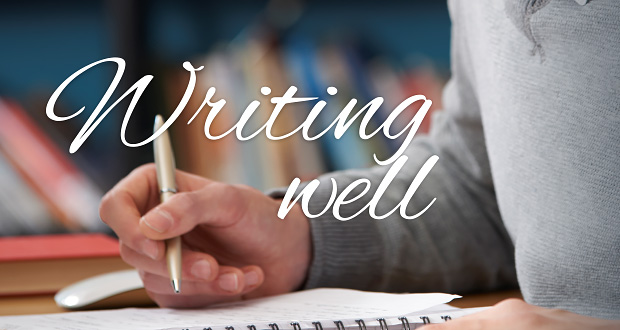Students and parents often call about the composition assignments, asking for advice about what to look for in reviewing a composition. Seton’s English lesson plans give specific guidance on grading compositions, which can be found in the Introduction and first quarter of each lesson plan. We encourage parents to use these guidelines to edit and correct their student’s book reports and other compositions. In the near future, we will be producing a video tutorial for analyzing compositions and improving writing skills. In the meantime, here’s some perspective on writing a good essay.
Outlining
The most fundamental and important step for writing a paragraph, an essay, a book report, or any composition is to write an outline. Teachers who score the SAT essay have reported that the biggest reason why students do poorly on the essay question is because the students never write an outline first. Hence, their essays are poorly written and difficult to follow.
The importance of outlines cannot be overstated. For instance, colleges often ask students to submit an essay as part of the entrance procedure, or when applying for financial aid. Without an outline, such an essay may be disjointed, which reflects poorly on the writing skills of the student, and could mean the difference between a positive and negative decision. Moreover, college professors sometimes require an outline before students start writing a paper so they can approve it first. This is especially true of major papers, such as the thesis required for graduation.
If your student has never written an outline, or has never developed a good outline, find articles in magazines or newspapers or the encyclopedia, or even print an article from the Internet. For a young child, provide a simple fairy-tale or Bible story. Then have your student write an outline of the main topics and the main points which support the main topics.
Be sure your student understands that an outline does not consist of sentences, but rather words or phrases. Have your student practice doing outlines, maybe five or ten or more, until he or she has an excellent understanding of what an outline should be. Only after students have learned to write correct outlines that reflect the important points of an article, should they start writing their own compositions based on an outline.
Why is an outline so important, you might ask? The outline gives order to the topic that will be covered in the composition. Whether it is for one paragraph or for a ten-page research paper, the outline explains how the topic will be presented throughout. It is like a roadmap that shows the precise route you must take to reach your destination. It doesn’t matter whether the topic will be organized according to chronology, importance of ideas, or something else. What matters is that the order is logical; the way to ensure that is to use an outline.
Editing
Just as lack of outlining causes problems at the beginning of a composition, so lack of editing causes problems at the end of a composition. Any good writer knows that a composition needs to be reviewed and rewritten.
Professional writers average eight rewrites before they submit their composition. They might change the order of words, add more precise words, shorten sentences for emphasis, improve a long sentence with a couple of hard-hitting short sentences, combine some sentences, or totally drop some sentences. The point is: never let the first draft be the last draft. Always encourage students to review and revise.
Reading to Writing
A great way to learn to write well is to read and read and read, and then read some more. The more a student reads, the more he becomes familiar with good writing, the more vocabulary words he learns, the more he learns about a logical presentation in a paragraph and essay. In fact, you might consider having your student read from history and science books, or even a chapter from literature, and identify such things as method of organization, effective word choice, and interesting sentence structure. A steady diet of good reading will teach your students and budding writers how to express themselves well. Don’t forget the thesaurus. Good writers make frequent use of a thesaurus to ensure that words chosen say precisely and exactly what was intended.
Encourage your children to write every day. Give your students a notebook or journal that can easily be carried. Encourage students to use these notebooks, writing something, no matter how little, each day. The writing could be about something that happened or some thought that left an impression during the day. Writing reflections on the events of the day develops analytical and thinking skills, which will, in turn, add greater joy to the experience of remembering and writing, as deeper meaning and connections are revealed by the process.
Perhaps the best part of learning to be a good writer is the realization that when your student wants to express himself on a topic which is personally very important, he can be persuasive and effective at helping others understand a subject or even convincing someone to change his mind about something. For Catholics, being a good writer can actually help others learn and love the Catholic faith. Now that is something to get excited about, and even to learn to write well about!

 Seton Magazine Catholic Homeschool Articles, Advice & Resources
Seton Magazine Catholic Homeschool Articles, Advice & Resources

